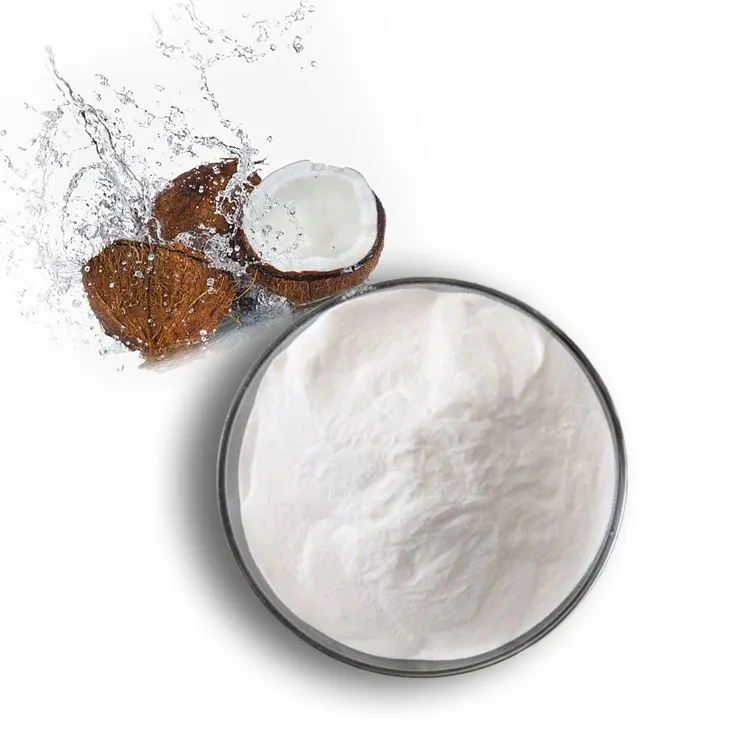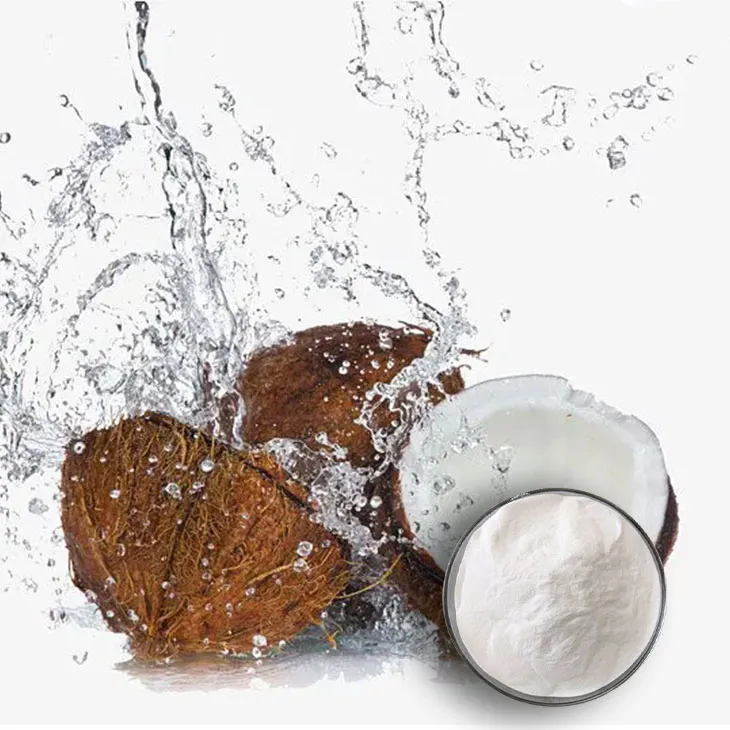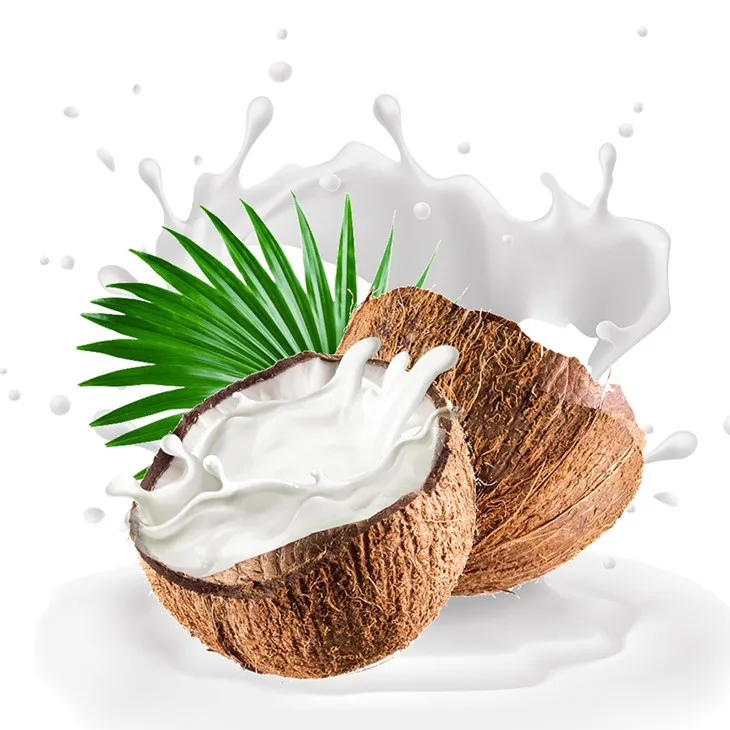- 0086-571-85302990
- sales@greenskybio.com
Coconut water powder bulk manufacturers and exporters.
2024-12-09

1. Introduction to the Industry
The Coconut Water Powder industry has been experiencing remarkable growth in recent years. This growth can be attributed to the increasing global awareness of the health benefits associated with coconut water. Coconut water is known for its rich content of natural electrolytes, vitamins, and minerals, making it a popular choice among health - conscious consumers. As a result, the demand for Coconut Water Powder, which offers a convenient and long - lasting form of coconut water, has been on the rise.

2. Manufacturers: The Backbone of Production
2.1. Investment in Facilities
Manufacturers in the Coconut Water Powder business are crucial for ensuring a steady supply of high - quality product. They invest heavily in state - of - the - art facilities. These facilities are designed to handle the entire production process, from the initial collection of coconuts to the final packaging of the powder. For example, modern manufacturing plants have large storage areas for freshly harvested coconuts. This ensures that the coconuts are processed as quickly as possible to maintain their freshness and the quality of the resulting coconut water powder.
2.2. Innovative Extraction Methods
One of the key aspects of the manufacturing process is the extraction of coconut water. Manufacturers are constantly researching and implementing innovative extraction methods. Traditional methods may not be as efficient in obtaining a large quantity of pure coconut water. New techniques focus on minimizing waste and maximizing the yield of pure coconut water. For instance, some manufacturers use a combination of mechanical and enzymatic processes. The mechanical process helps in breaking down the coconut flesh to release the water, while the enzymatic process further purifies the water by breaking down any remaining impurities.
2.3. Drying Technologies
After the extraction of coconut water, the next step is drying it to convert it into powder. This is a delicate process as it needs to preserve the natural goodness of the coconut water. Manufacturers use advanced drying technologies such as spray drying or freeze - drying. Spray drying is a popular method as it is relatively fast and can produce a fine powder. It involves spraying the coconut water into a hot air chamber, where the water evaporates quickly, leaving behind the powder. Freeze - drying, on the other hand, is a more expensive but gentler process. It involves freezing the coconut water first and then removing the ice through sublimation, which helps in retaining more of the nutrients and flavor of the coconut water.

3. Exporters: Bridging the Global Gap
3.1. International Networks
Exporters of coconut water powder play an indispensable role in the global distribution of the product. They have extensive international networks that consist of distributors, wholesalers, and retailers in different countries. These networks are carefully cultivated over time. For example, an exporter may have a long - standing relationship with a distributor in Europe who has a wide reach across multiple European countries. This allows the coconut water powder to be available in various stores, from large supermarkets to small health food stores.
3.2. Market Exploration
Exporters are always on the lookout for new markets. They conduct market research to identify regions where there is a potential demand for coconut water powder. For example, they may notice that in some Asian countries, there is a growing trend towards consuming health products, especially those with natural ingredients. Based on this finding, they can target these markets by adapting their marketing strategies. This may include promoting the product in local languages, using cultural references that are relevant to the target market, and partnering with local influencers to increase brand awareness.
3.3. Identifying Emerging Trends
Another important function of exporters is to identify emerging trends in the global market. In the fitness and sports nutrition market, for instance, there has been an increasing demand for products that can quickly replenish electrolytes. Coconut water powder, with its natural electrolyte content, is a perfect fit for this market segment. Exporters who are aware of this trend can work with manufacturers to develop products specifically tailored for the sports nutrition market. This could include creating flavored coconut water powder blends that are more appealing to athletes and fitness enthusiasts.

4. Contribution to Cultural Promotion
Coconuts have a deep - rooted cultural significance in many tropical regions. In countries like the Philippines, India, and Indonesia, coconuts are not just a source of food and drink but are also an integral part of cultural and religious ceremonies. When coconut water powder is exported around the world, it is also sharing this cultural aspect. For example, in some Western countries, consumers may become more interested in the origin and cultural background of coconut water powder after trying the product. This can lead to a greater appreciation of the cultures where coconuts are a staple.
4.1. Promoting Tropical Cultures
Manufacturers and exporters can also promote tropical cultures through their marketing efforts. They can use packaging and promotional materials that feature elements of tropical cultures, such as images of coconut groves, traditional harvesting methods, or local festivals related to coconuts. This not only makes the product more appealing but also helps in spreading awareness about the cultures associated with coconuts.
4.2. Educational Aspect
There is also an educational aspect to the export of coconut water powder. As the product reaches new markets, it can serve as a means to educate consumers about the benefits of coconuts and the cultures that revolve around them. For example, a company could include a brochure or information on their website about the history of coconuts in tropical regions, how they are cultivated, and the different ways in which they are used in local cuisines and traditions.
5. Challenges Faced by Manufacturers and Exporters
5.1. Quality Control
Maintaining consistent quality is a major challenge for both manufacturers and exporters. Since coconut water powder is a natural product, its quality can be affected by factors such as the variety of coconuts used, the harvesting time, and the processing conditions. Manufacturers need to implement strict quality control measures at every stage of production. This includes testing the coconuts for freshness and purity before extraction, monitoring the drying process to ensure that the powder retains its nutritional value, and conducting final product tests to check for any contaminants.
5.2. Competition
The coconut water powder market is becoming increasingly competitive. There are numerous manufacturers and exporters vying for a share of the market. This means that companies need to find ways to differentiate their products. They can do this through product innovation, such as developing unique flavors or formulations of coconut water powder. Another way is through superior marketing strategies, for example, by building a strong brand image based on quality, sustainability, or cultural authenticity.
5.3. Regulatory Compliance
Manufacturers and exporters also have to deal with regulatory requirements in different countries. Each country may have its own set of regulations regarding food safety, labeling, and import/export procedures. For example, some countries may require detailed information about the ingredients and nutritional content on the product label, while others may have specific restrictions on the use of certain additives. Ensuring compliance with these regulations can be time - consuming and costly, but it is essential for successful international trade.
6. Future Outlook
The future looks promising for coconut water powder manufacturers and exporters. As consumer awareness of the health benefits of coconut water continues to grow, the demand for the powder form is expected to increase. There are also opportunities for expansion in new markets, especially in regions where the concept of natural and healthy products is gaining popularity.
6.1. Product Diversification
Manufacturers and exporters can look forward to product diversification. This could involve creating new product lines based on coconut water powder, such as ready - to - drink coconut water powder mixes, or using coconut water powder as an ingredient in other food and beverage products. For example, some companies may start producing coconut water powder - based energy bars or smoothies.
6.2. Sustainability Initiatives
In the future, sustainability will play an increasingly important role. Consumers are becoming more conscious of the environmental impact of the products they consume. Manufacturers and exporters can invest in sustainable coconut farming practices, such as using organic fertilizers and reducing water consumption. They can also promote their sustainability efforts in their marketing, which can attract environmentally - conscious consumers.
FAQ:
What are the main production processes of coconut water powder manufacturers?
Manufacturers first use innovative extraction methods to obtain a large amount of pure coconut water from coconuts. Then, they employ drying technologies that are mild enough to retain the natural goodness of the coconut water while transforming it into powder.
Why are exporters important in the coconut water powder industry?
Exporters are crucial as they act as ambassadors in the international market. They have extensive international partner networks for distributing the product globally. They also explore new markets and identify emerging trends, which can influence marketing and product development strategies.
How do manufacturers ensure the quality of coconut water powder?
Manufacturers ensure quality by investing in modern facilities and technology. They use proper extraction and drying methods. The extraction method aims to get pure coconut water, and the drying method is designed to preserve the natural properties of the coconut water during the conversion to powder.
What role does coconut water powder play in the sports nutrition market?
Coconut water powder is in demand in the sports nutrition market because it contains natural electrolytes. These electrolytes can help athletes replenish fluids and minerals lost during exercise.
How do manufacturers and exporters contribute to cultural promotion?
Coconuts are significant in the cultures of many tropical regions. By exporting coconut water powder, manufacturers and exporters share this cultural element with the world, while also offering a healthy and tasty product to global consumers.
Related literature
- The Production and Market Potential of Coconut Water Powder"
- "Coconut Water Powder: A Global Export Perspective"
- "Manufacturing and Exporting Coconut - based Products: The Case of Coconut Water Powder"
- ▶ Hesperidin
- ▶ citrus bioflavonoids
- ▶ plant extract
- ▶ lycopene
- ▶ Diosmin
- ▶ Grape seed extract
- ▶ Sea buckthorn Juice Powder
- ▶ Beetroot powder
- ▶ Hops Extract
- ▶ Artichoke Extract
- ▶ Reishi mushroom extract
- ▶ Astaxanthin
- ▶ Green Tea Extract
- ▶ Curcumin Extract
- ▶ Horse Chestnut Extract
- ▶ Other Problems
- ▶ Boswellia Serrata Extract
- ▶ Resveratrol Extract
- ▶ Marigold Extract
- ▶ Grape Leaf Extract
- ▶ blog3
- ▶ blog4
- ▶ blog5
-
Pure 85% Tomentil Extract.
2024-12-09
-
Withania Somnifera Extract
2024-12-09
-
Polygonum Cuspidatum Extract
2024-12-09
-
Shikone Extract
2024-12-09
-
Tormentil Extract
2024-12-09
-
Jujube Extract
2024-12-09
-
Apricot Powder
2024-12-09
-
Beta Carotene
2024-12-09
-
Curcuma Longa Extract
2024-12-09
-
Resveratrol extract
2024-12-09
-
Calendula Extract
2024-12-09





















